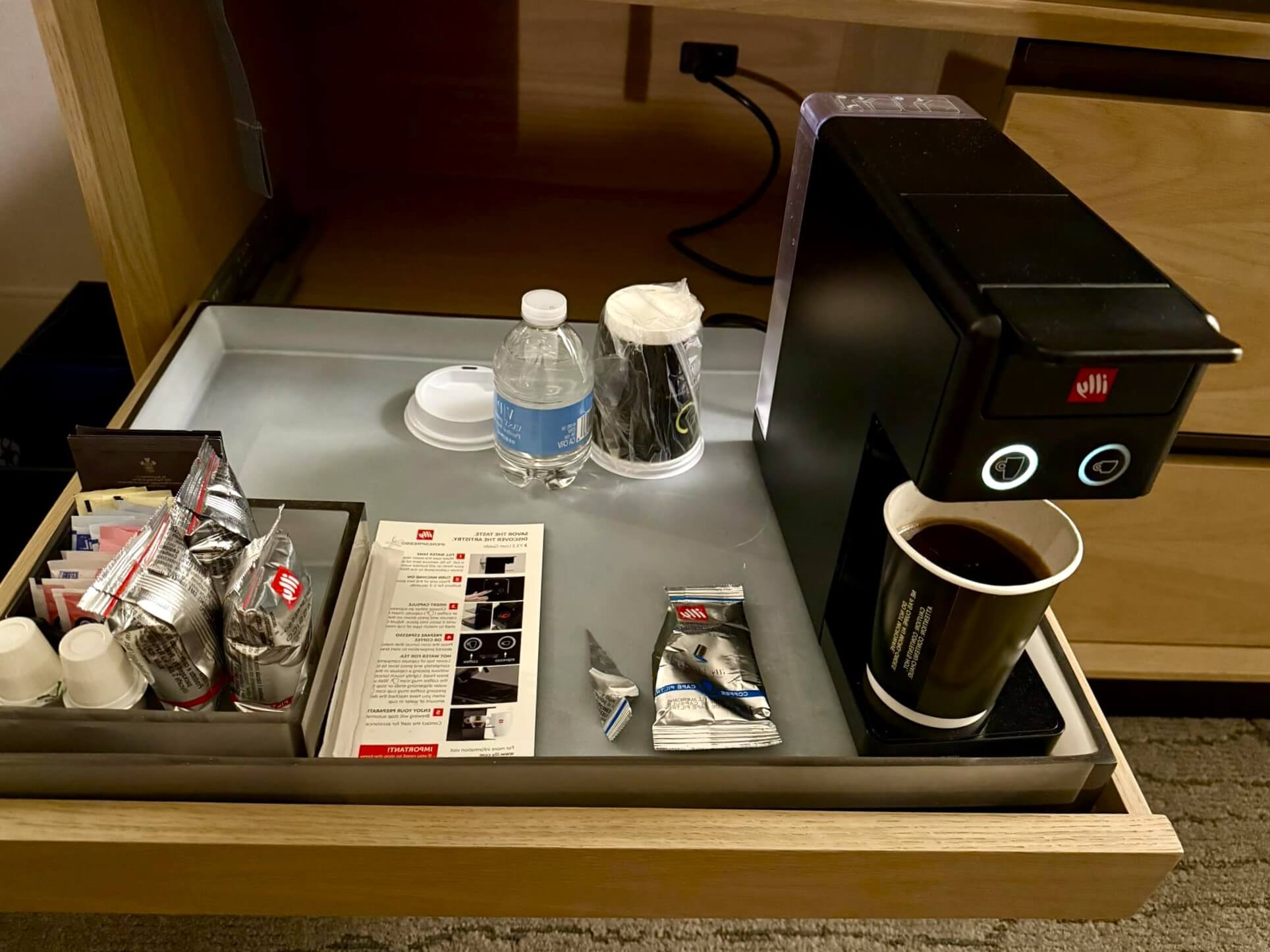Have you ever wondered why your stomach churns after that seemingly innocent morning hotel coffee?
Well, it may not be a coincidence, and it may not be merely that coffee is bad for your stomach.
Brace yourself for a revelation that’ll make you think twice about brewing up that complimentary caffeine while you’re traveling.
The Reality in Plain Sight
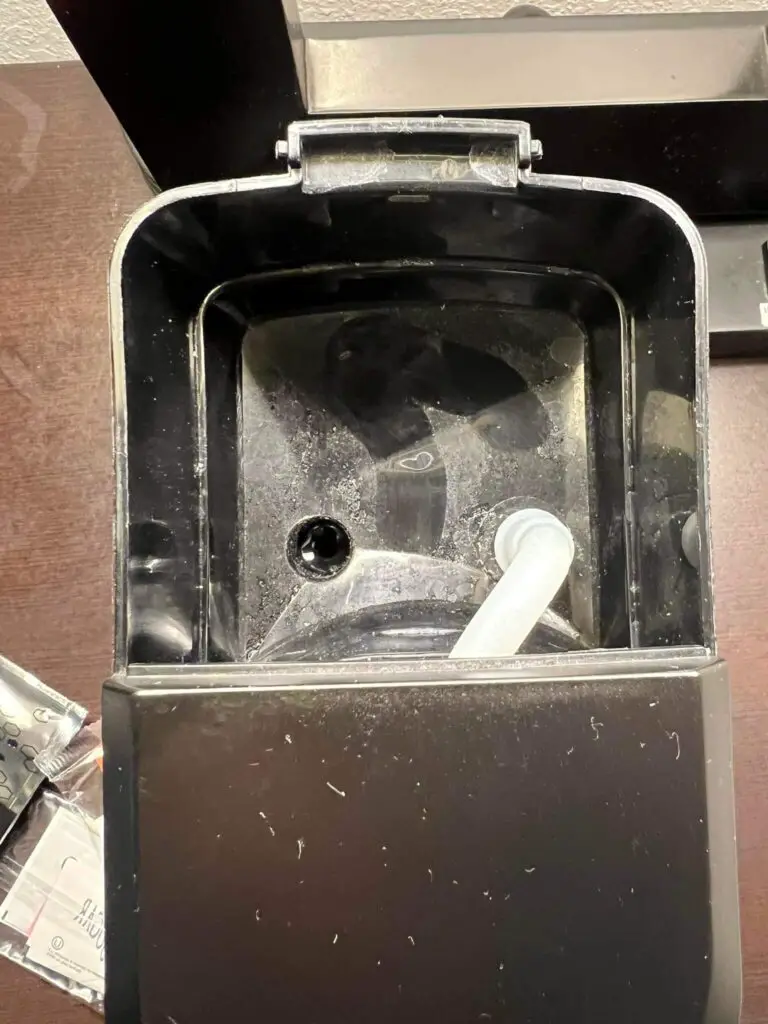
When we wake up in a hotel room, we are often tired from traveling or after a long city tour. That’s why a lot of people are desperate for a caffeine boost.
That shiny little coffee maker looks harmless, right? Well, not really.
What you don’t see is a horror show of microscopic proportions that would make even the most seasoned traveler’s skin crawl.
Hotels began introducing in-room coffee makers in the late 1980s as an added amenity, and what started as a luxurious touch quickly became a standard feature in nearly every hotel room worldwide.
But convenience came at a price – a price most travelers are completely unaware they’re paying.
Coffee Machines Cleaning
Hotels have hundreds (or thousands) of guests every week, and what about that coffee maker?
It has probably seen more action than you can even imagine, and unfortunately, most housekeeping staff are not trained to deep clean these machines, and the quick wipe-down is nothing more than a cosmetic cover-up.
A study by the National Sanitation Foundation found that hotel coffee makers rank as one of the most contaminated items in hotel rooms – even worse than toilet seats (it’s a bit disgusting to hear, I know, but someone has to say it).
The problem goes beyond just a quick cleaning. These machines are complex devices with multiple hard-to-reach components.
Water reservoirs, brewing mechanisms, and collection areas create intricate spaces where bacteria and mold can thrive undetected, and the warm, moist environment is essentially the perfect enviroment for microscopic organisms.
What Kind of Microorganisms Can Develop Inside Them?
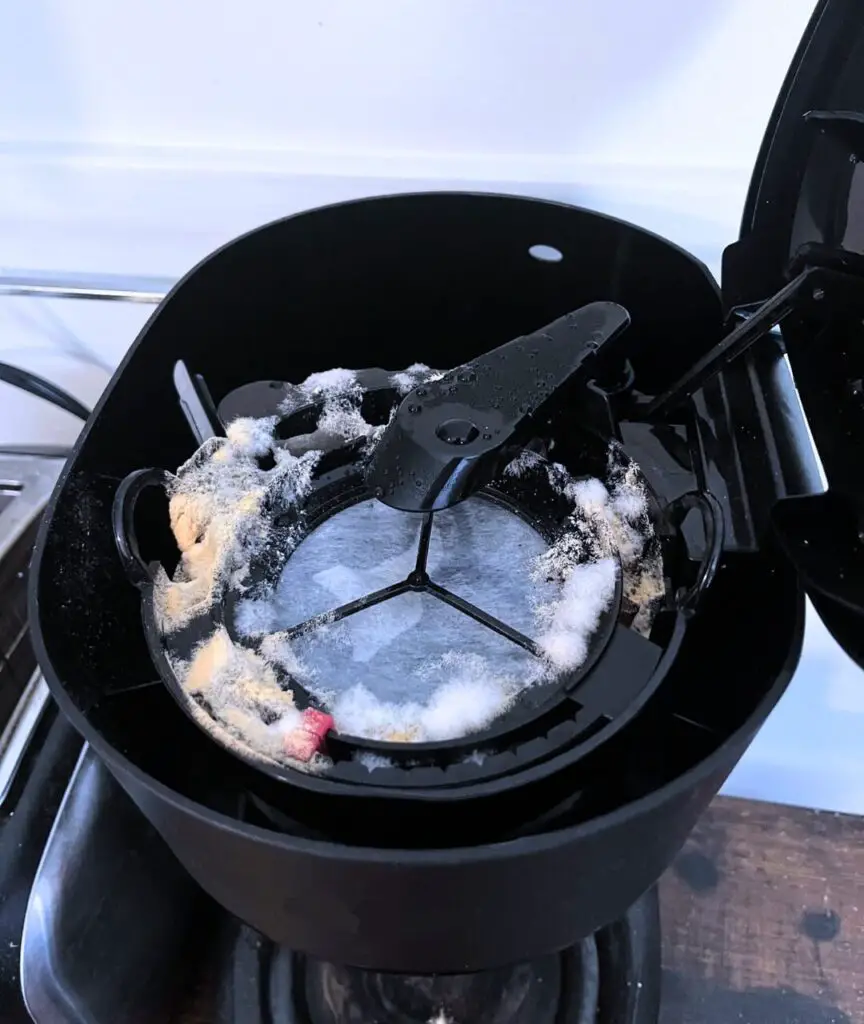
Firstly, warm, moist environments are a paradise for mold spores. Mold can develop within days, especially in machines that aren’t thoroughly dried between uses.
Secondly, E. coli, staph, and other microbes love setting up camp in these kinds of machines.
These bacteria can cause serious digestive issues, turning your relaxing vacation into a nightmare of bathroom visits.
And finally, years of accumulated coffee, mineral deposits, and who-knows-what create a perfect ground for biofilms, a slimy layer of mixed bacteria and fungi.
Beyond the Brewing Surface
Remember that the contamination isn’t limited to just the visible parts of the coffee maker.
Many travelers won’t immediately connect their subsequent illness to a coffee maker (since these microorganisms are completely invisible to the naked eye), making the potential health impact even more insidious.
The Science Behind the Contamination
As we have seen before, some studies have found that coffee makers can harbor more bacteria than a typical toilet seat.
In particular, Chuck Gerba, professor of microbiology at the University of Arizona, said that the first thing that gets germiest is the coffee pot handle.
However, on a single-use machine, the worst part is the top of the machine where the people place the plastic pod.
Some analysis even discovered that these machines often contain coliform bacteria, a group of microorganisms that indicates potential fecal contamination.
This is why we really want to point out that it isn’t just about a dirty machine – it’s about potential serious health risks.
But now that we know, what can we do to avoid any potential risk? Let’s see some useful tips.
Staying Safe While Drinking Coffee
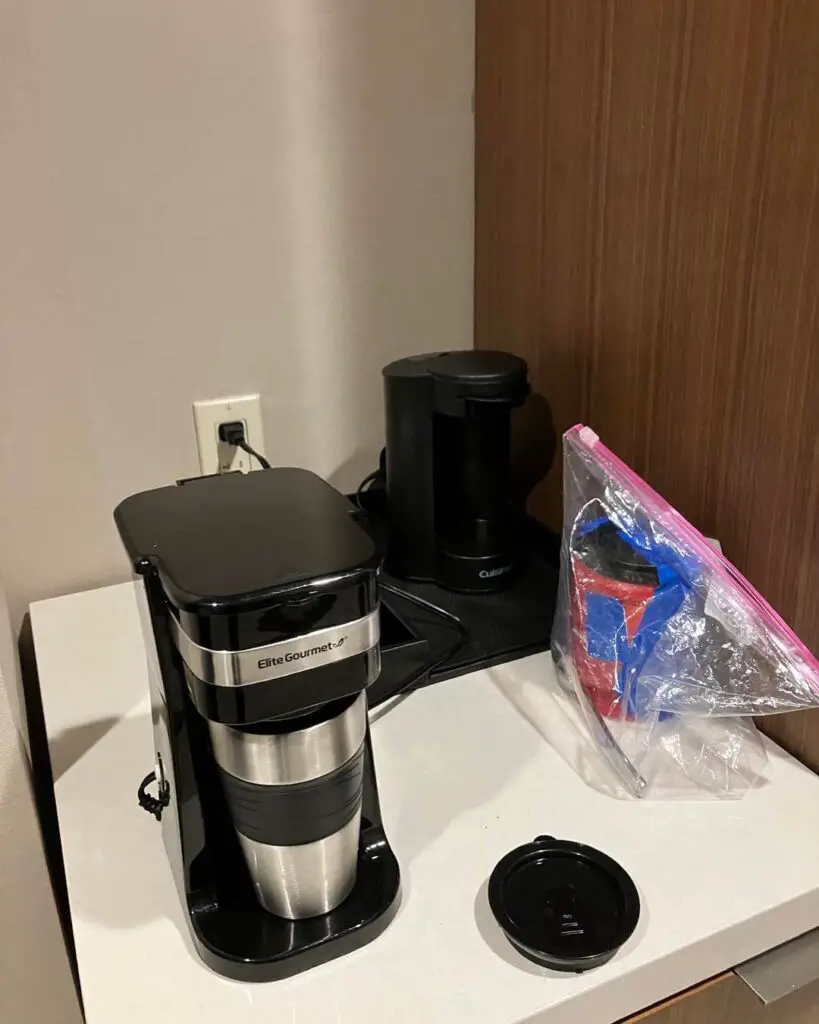
The first thing you could do is to bring your own coffee maker.
For example, portable travel kettles, single-serve coffee makers, or a traditional moka if you have access to a kitchen.
They’re lightweight, affordable, and give you complete control over your coffee.
Another (easier) thing you can do is to request freshly brewed coffee from the hotel lobby or the nearest cafe.
The commercial machines undergo more rigorous cleaning and maintenance and are way safer than those in the room.
If you like it, you could also simply pack alternatives like instant coffee packets. They take up minimal space in your luggage but provide peace of mind.
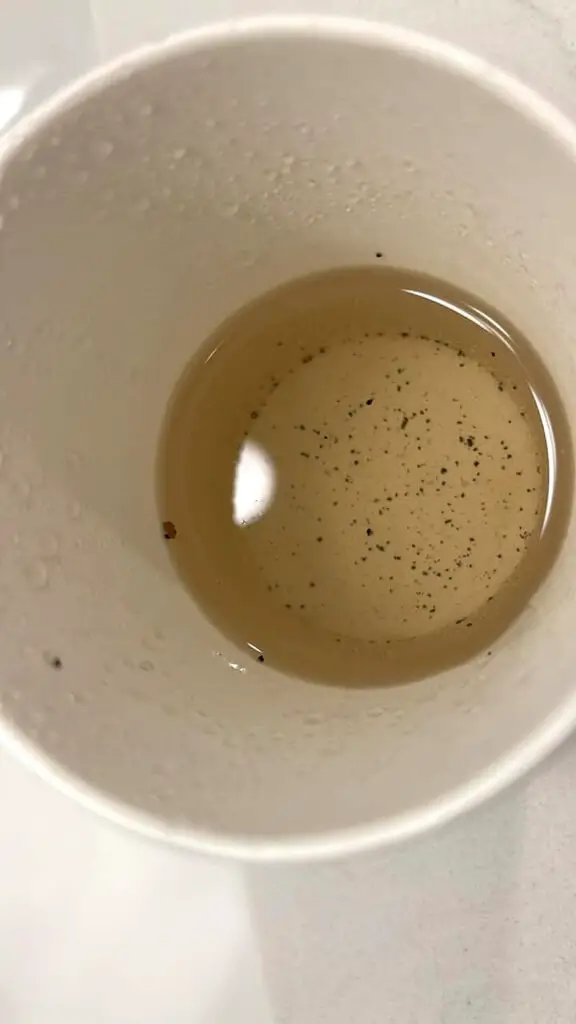
If you really wanna use the hotel coffee maker, run a cycle of plain water first to flush out potential contaminants.
Use bottled water if possible, and carefully inspect the machine for any visible signs of dirt or damage. If the machine is dirty or damaged, you could ask for a new or clean one at reception.
Your Health is Worth More Than Convenience
The coffee from the coffee maker in your room is free and convenient. That’s why a lot of people like to have it.
I know it’s tempting, but let me tell you that a few extra minutes spent to find a proper coffee shop beats days of potential stomach issues.
Your immune system will thank you for being a little extra cautious, especially when you’re traveling.

